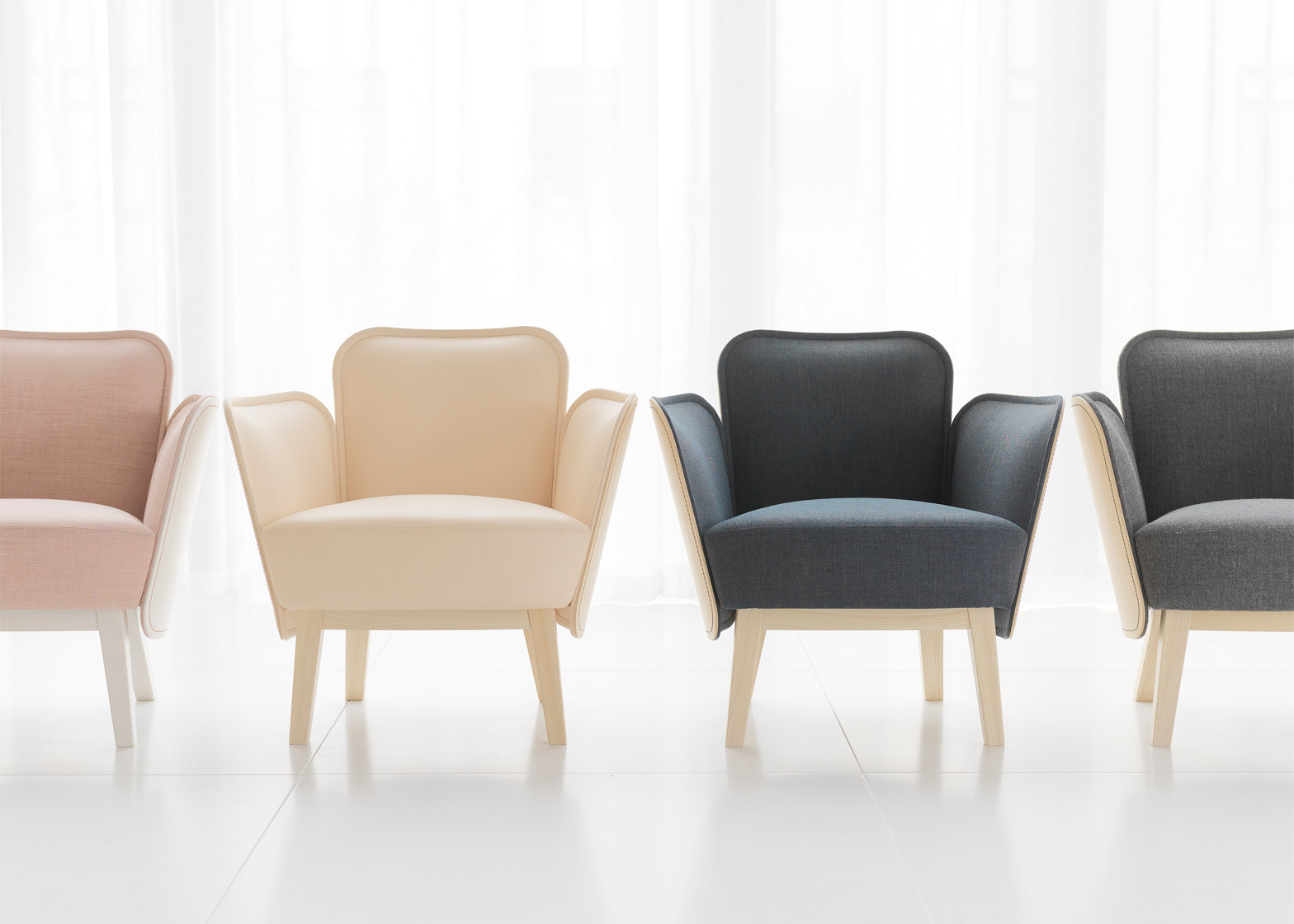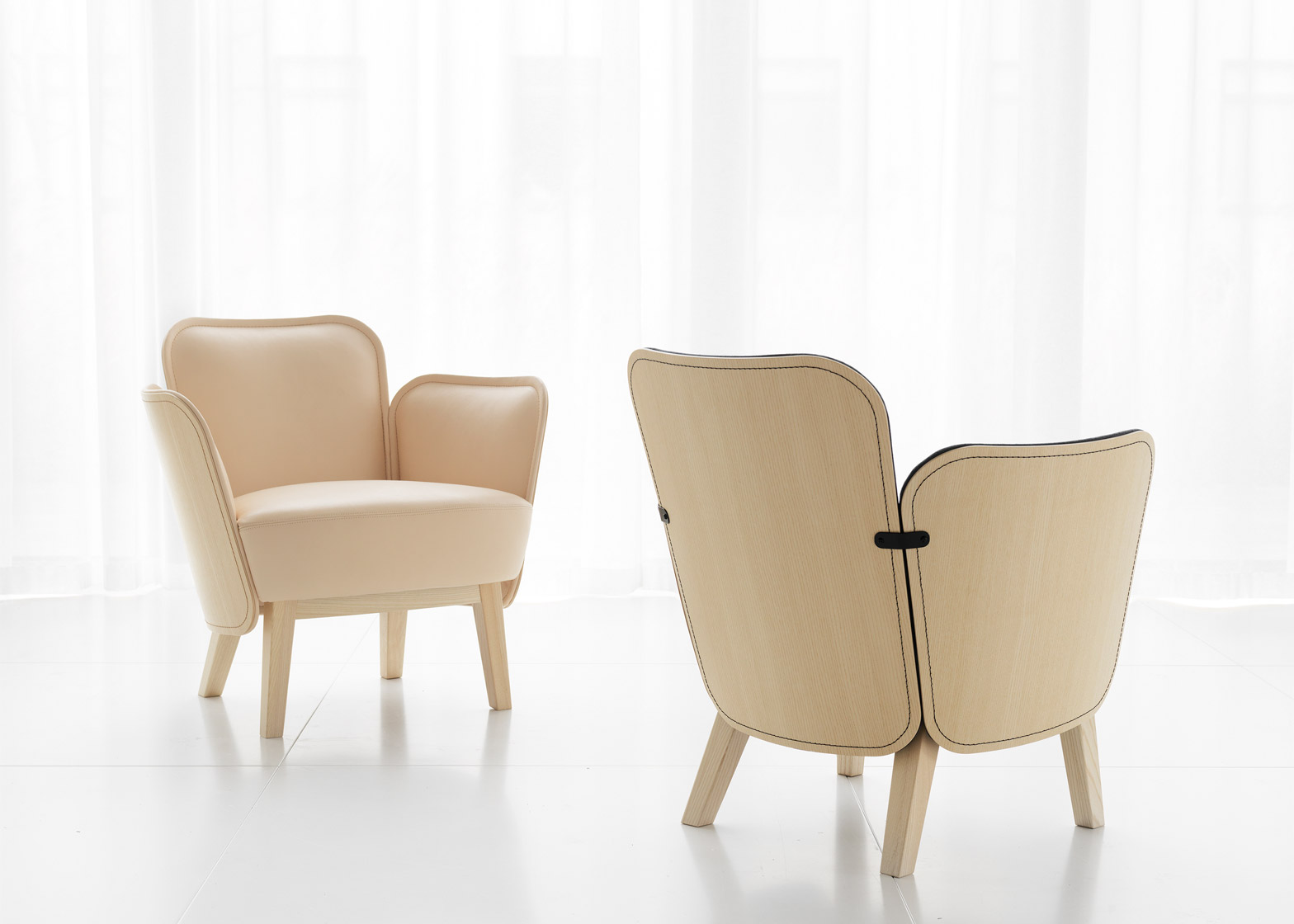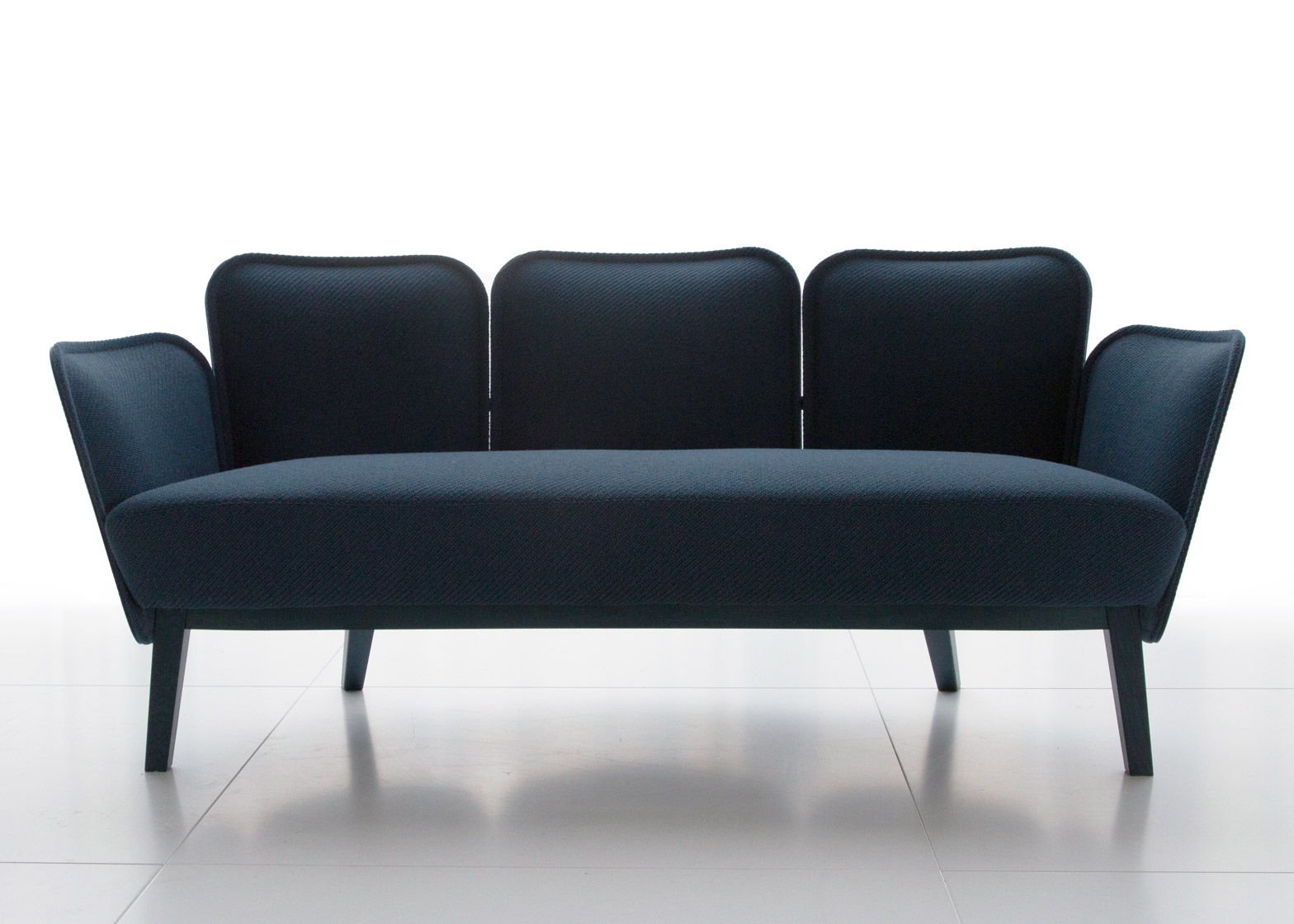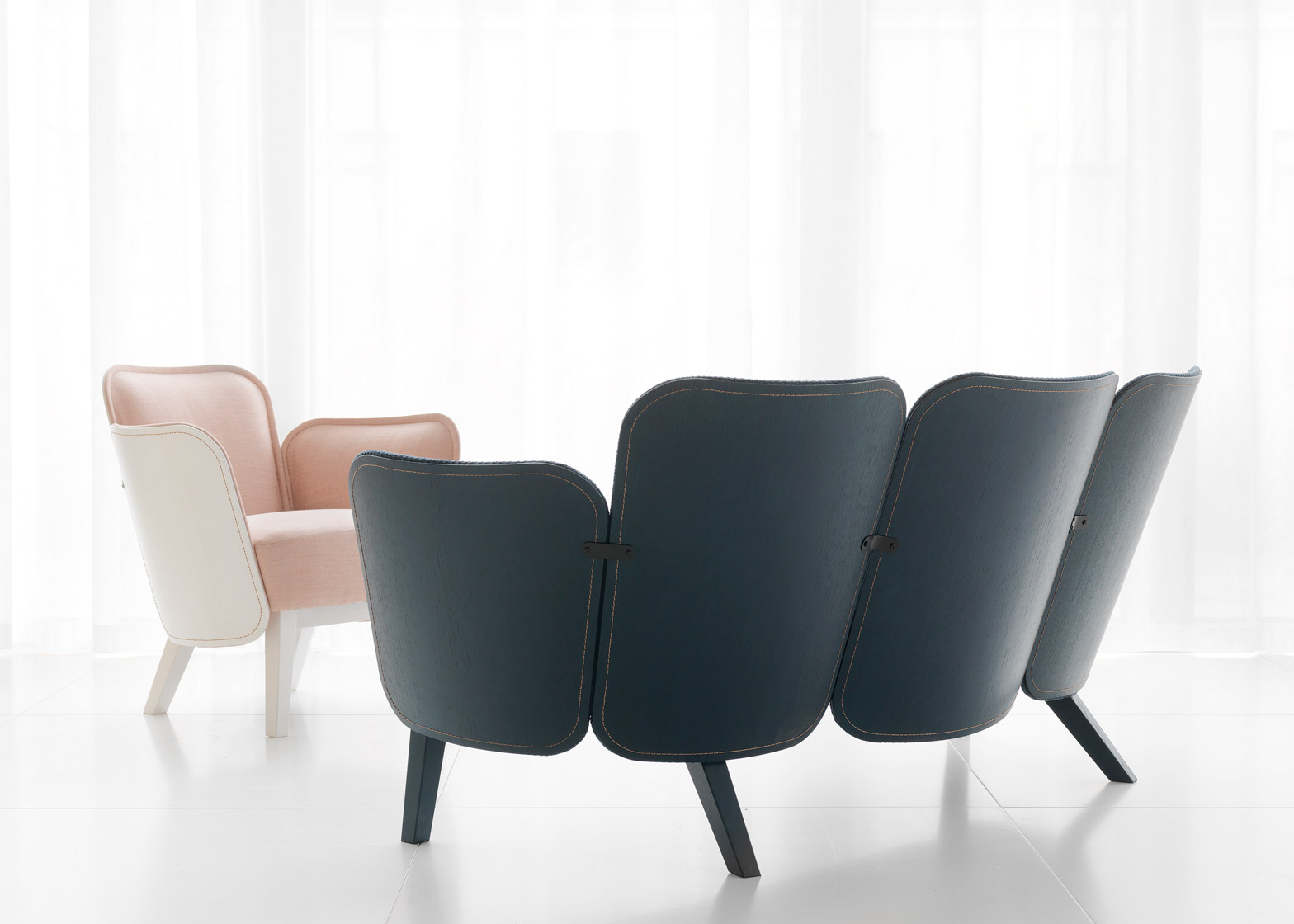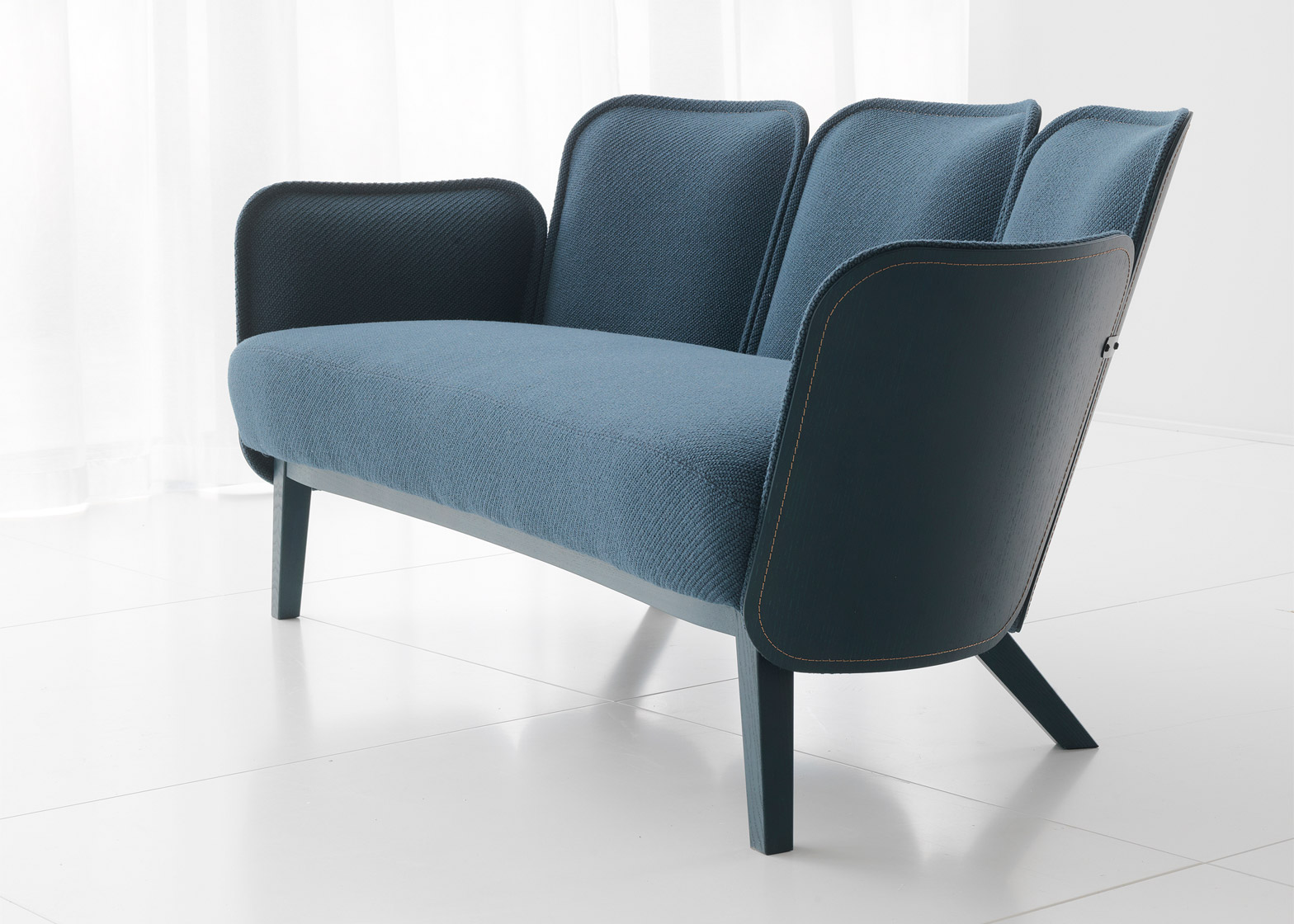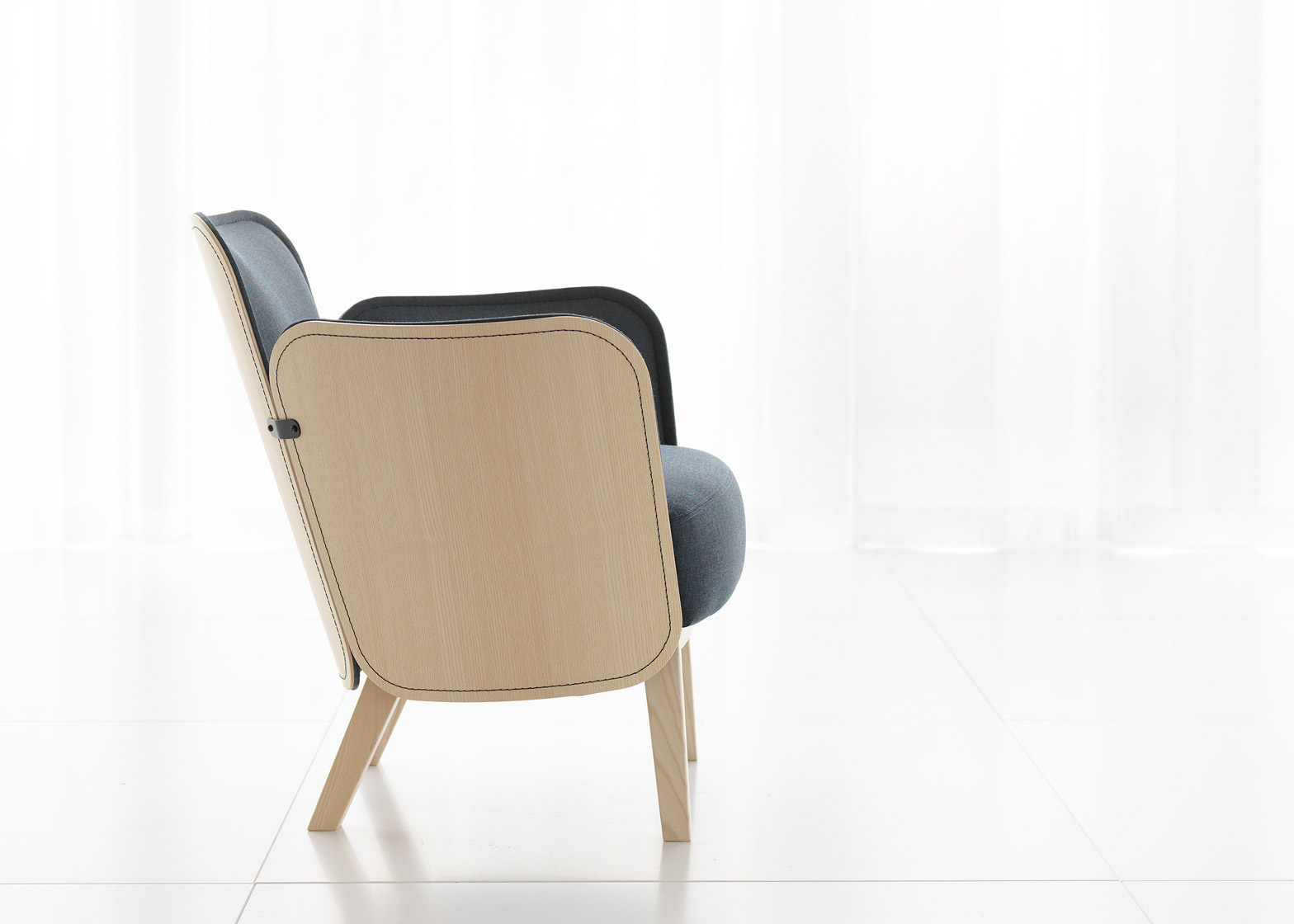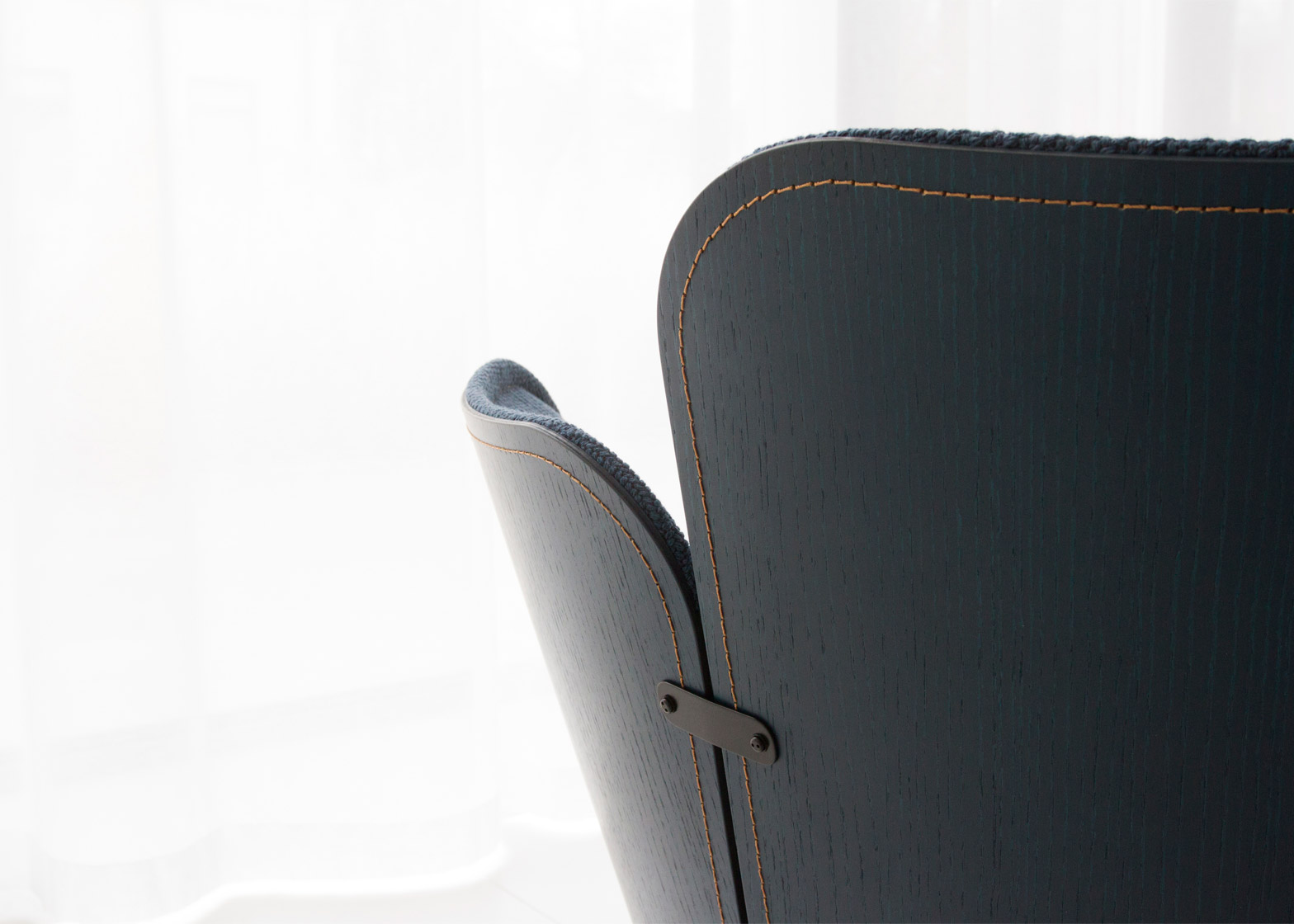Stockholm 2016: Stockholm studio Färg & Blanche has used its signature "wood tailoring" technique to produce a collection of sofas and chairs for furniture brand Gärsnäs (+ slideshow).
The process – which the pair have been developing for several years – involves stitching fabric directly onto wood using a customised sewing machine.
The duo, made up of Fredrik Färg and Emma Blanche, previously used the technique to stitch thin layers of plywood together to create furniture. Their new Julius seating collection is made in a similar way, and features upholstered seats with arms and backs made from rounded panels of wood.
The sofa's back is made from three of these shapes placed side-by-side, while the armchair features a single wooden panel as a back support. The fabric and padding are attached straight onto one side of the wood, with the stitching still visible from the uncovered back of the plate.
"This shape is the result of intensive research aimed at developing a module that can be used for both the sofa and easy chair," said Färg & Blanche, which previously designed a collection of stools for Gärsnäs.
"The conspicuous stitching provides a worked and tactile feeling," the designers added.
The wooden panels are available in various colours and stains, while the legs of the chairs and sofas are made of solid ash. Customers can also choose from a range of textile hues, including pale pink, dark blue or grey.
"There are countless possibilities to alter the furniture's expression," said the designers. "Partly through the choice of upholstery and partly depending on the chosen surface treatment of the wooden back plate, as well as varying the colour of the visible stitching."
According to Farg & Blanche, the technique is suitable for mass production, and because the wood is sewn together with the fabric, the two are easy to separate when it is time to recycle the furniture.
The seating range is shown at Stockholm Furniture Fair, which runs from 9 to 13 February 2016. The studio is also showing a collection of mirrors at the fair, featuring criss-crossed indentations made by binding the leather frames with rope.

